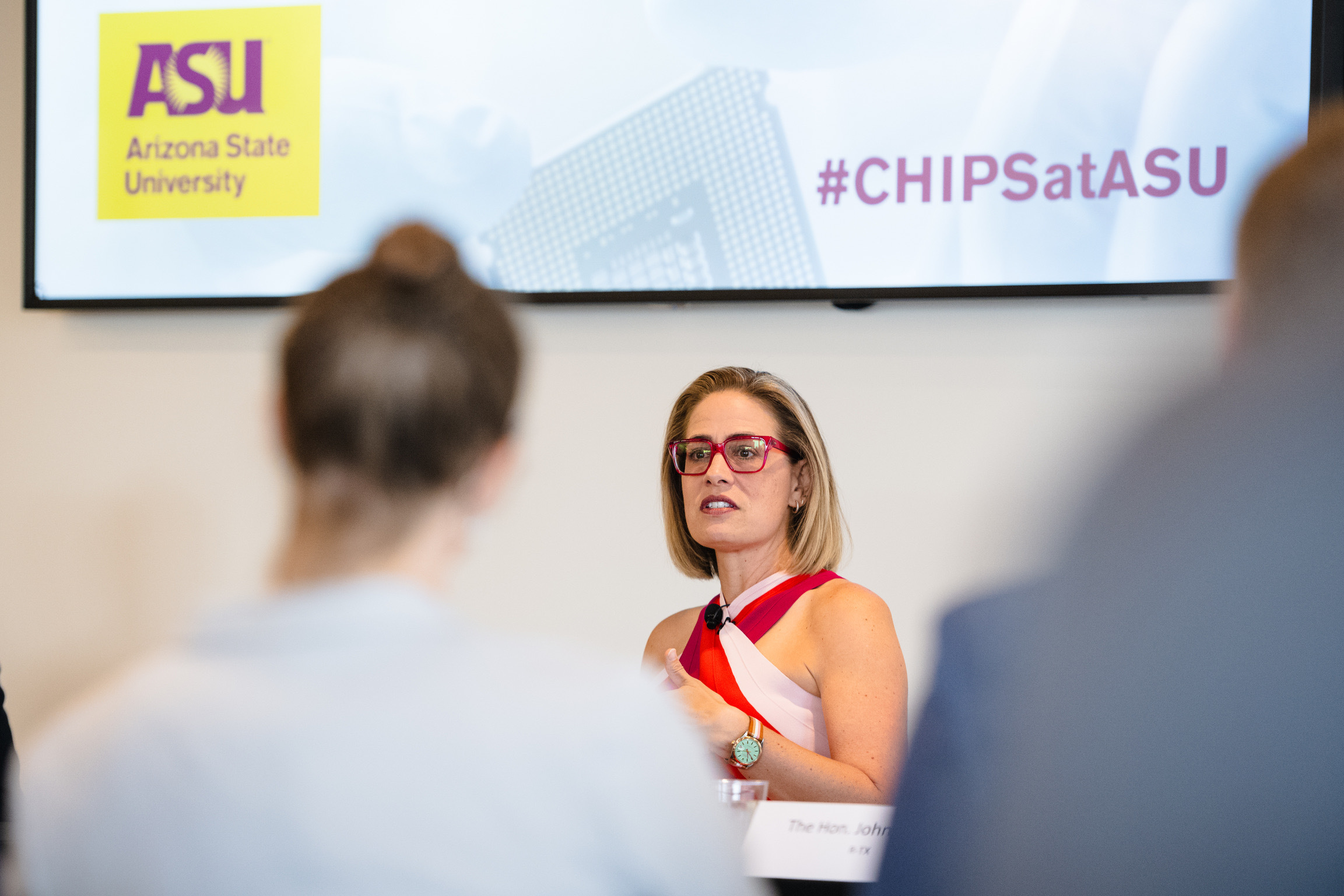Senator clinched bipartisan deal & broke partisan logjam, allowing legislation to advance into law
WASHINGTON – Arizona senior Senator Kyrsten Sinema spoke at an Arizona State University (ASU) panel, moderated by ASU President Michael Crow, about what her landmark Chips and Science law – legislation making an unprecedented investment in American semiconductor manufacturing – means for national security, research, innovation, workforce development, and Arizona’s economic future.
Sinema was joined by Republican Senator John Cornyn (Texas) to detail how the historic package came together and earned broad bipartisan support in the U.S. Senate and discuss implementation of the transformative law.
“Our Chips and Science law represents a commonsense, bipartisan effort to strengthen our supply chains, address shipping delays, and grow domestic manufacturing by – in part – boosting our country’s investment in semiconductor production. Increasing semiconductor production at home ensures our national security, reduces prices, and creates thousands of new, high-paying Arizona jobs,” said Sinema.
Approximately 90% of the world’s chips manufacturing capacity is outside of the United States. Now that Sinema’s Chips and Science Act is law, the federal government will partner with corporations and universities such as ASU, a nationally-recognized leader in innovation, to help bridge that gap and restore America’s global leadership in semiconductor manufacturing.
During the panel, Sinema discussed how partisan Washington political games jeopardized the size and scope of the Chips and Science Act and threatened Congress’s ability to pass a robust piece of legislation tackling economic challenges now and shaping the economy into the future. Unwilling to let political games hinder bipartisan progress on a once-in-a-generation investment in American manufacturing, Sinema worked with Republican Senator Todd Young (Ind.) to bring colleagues together and find common ground. Ultimately, the legislation garnered the bipartisan support of 64 senators.
The Sinema-shaped Chips and Science law provides more than $52 billion to boost domestic semiconductor manufacturing amidst a global semiconductor shortage, reducing reliance on foreign countries like China and enhancing the United States’ global competitiveness. The historic investment will support tens of thousands of jobs in Arizona alone.
The law also modernizes the federal government’s approach to science, improves the National Science Foundation, grows the STEM workforce, and expands our country’s global leadership in innovation, research, and development – keeping the United States ahead of China and other global competitors in technological advancement. The law also includes key provisions ensuring none of the historic investments in innovation, manufacturing, or development can go to China – keeping the law American-focused and boosting American jobs.
Sinema ensured the law reauthorizes the National Aeronautics and Space Administration (NASA), incorporating provisions she drafted as a leader on the Space subcommittee – directing NASA to fund key science research at Arizona universities, maintaining the International Space Station, and sending the first woman to the moon.
Throughout negotiations that ultimately led to the success of the legislation, Sinema consistently heard from Arizona manufacturers about how the plan will relieve ongoing supply chain challenges, get goods to store shelves faster, and expand economic opportunities in Arizona and across the country.

